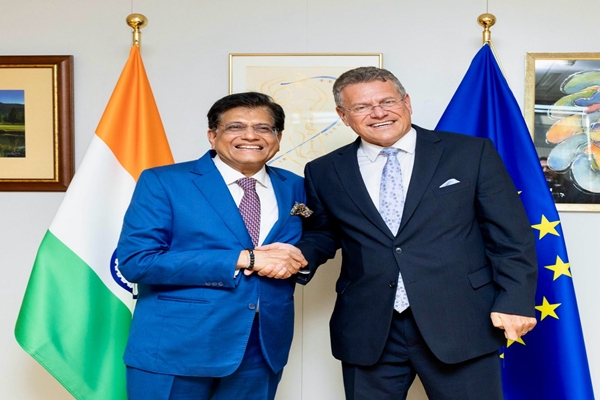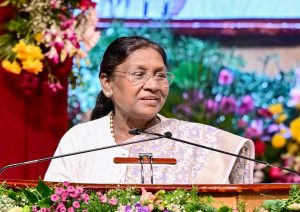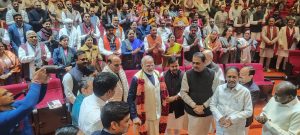Minister of Commerce and Industry Piyush Goyal and European Commissioner for Trade and Economic Security Maroš Šefčovič have reaffirmed their shared resolve to conclude the India-European Union Free Trade Agreement (FTA) by the end of 2025. During a key meeting held in Brussels, Belgium yesterday, both sides engaged in a forward-looking and substantive dialogue to address global trade challenges.
In a social media post, Mr. Goyal described the dialogue as highly productive, noting that the meeting focused on enhancing market access for businesses, promoting trusted and diversified supply chains, and deepening the partnership to drive the growth of both economies. He added that discussions also covered boosting innovation and competitiveness, as well as the critical role of investments and mobility in shaping a future-ready agreement. Mr. Goyal emphasised that both India and the EU-under the leadership of Prime Minister Narendra Modi and President of the European Commission, Ursula von der Leyen, remain committed to working towards a mutually beneficial and strategic agreement that ensures shared prosperity and sustainable development across both regions.
The meeting highlighted the progress made across multiple negotiating tracks and emphasised the importance of maintaining the ongoing momentum through monthly negotiating rounds and continued virtual engagement. Both sides reiterated their aim to address pending issues in a spirit of mutual respect and pragmatism, including at the next round scheduled to be held from 12 to 16 of this month in New Delhi. In the meeting, India emphasised that meaningful progress in trade negotiations requires equal focus on non-tariff barriers (NTBS) alongside tariff discussions and regulatory frameworks must be inclusive, proportionate, and avoid restricting trade. Both sides expressed optimism that the agreement, once concluded, will serve as a transformative pillar of the broader India-EU strategic partnership, enhancing market access, supporting regulatory cooperation, and fostering innovation and competitiveness on both sides. Both sides acknowledged the crucial role of investment flows and people-to-people mobility in sustaining economic vitality.
In the spirit of India’s emergence as a “Vishwa Mitra”, a partner to the world-and aligning with its 2047 development goals, the India-EU FTA is seen as an instrument to promote diversified production networks and uphold fair trade principles. As India continues to broaden its footprint through multiple free trade deals, this dialogue reflects its broader vision of shaping a future-ready framework aligned with national priorities and global aspirations.








